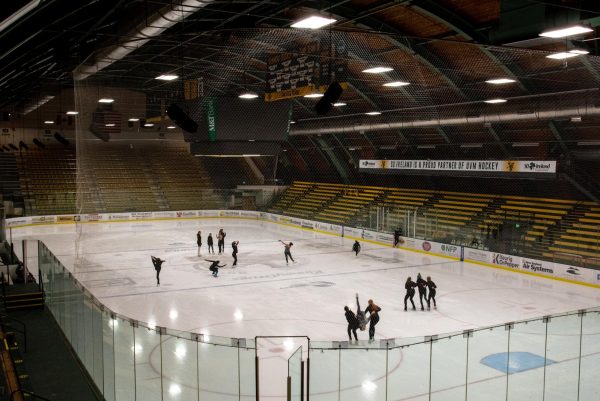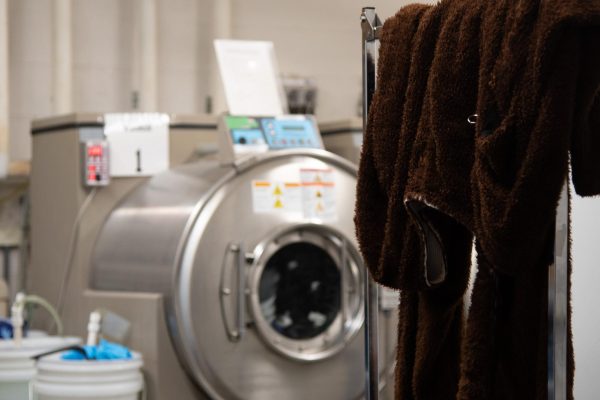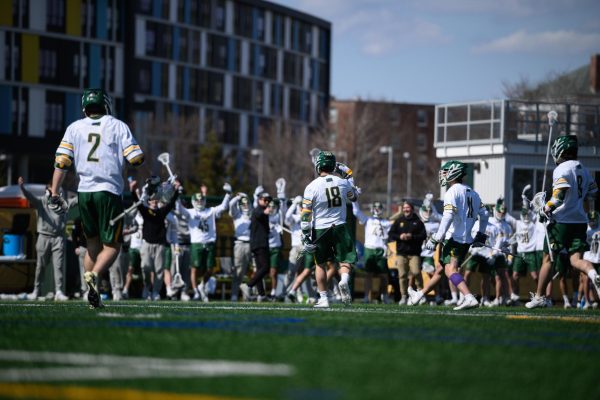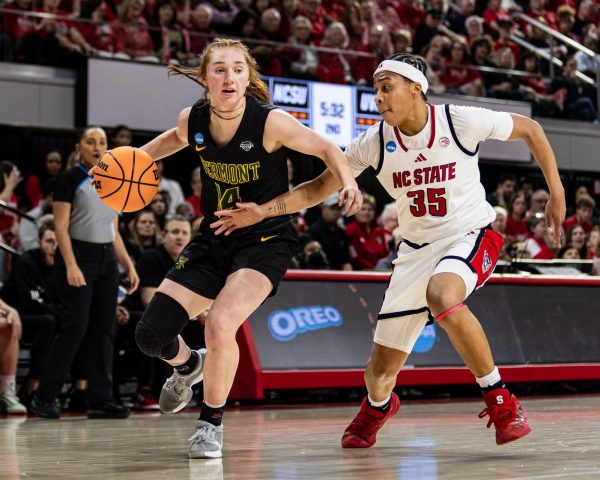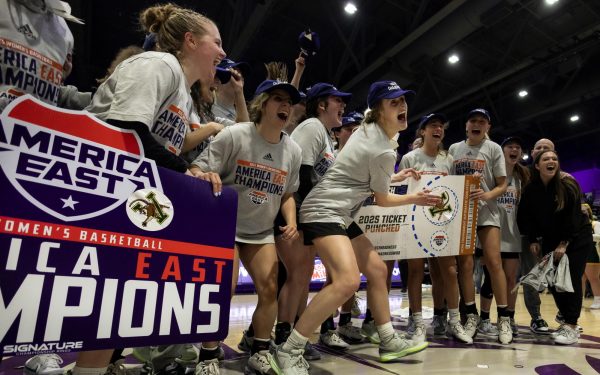Textbook resale violates UVM student athlete policy
Recently, student-athlete compliance with NCAA scholarship eligibility rules has affected a UVM athlete.
On Dec. 16, the men’s basketball team’s junior guard Dre Wills was suspended for violating the student-athlete code of conduct, according to the original report from the Burlington Free Press.
In late December, the University’s athletic department released the reason behind Wills’ suspension.
Because of “the resale of academic books that was not permitted as part of his athletic scholarship,” Wills was suspended for eight games, according to a UVM news release in late December.
The resale of textbooks is practiced by students, however it is something that student-athletes are not allowed to do, according to the NCAA’s eligibility rules.
This act is a direct violation of the NCAA’s eligibility rules because these athletes would gain impermissible cash benefits in addition to their scholarship.
This rule is in place to ensure that the student-athletes are not compensated directly or indirectly from a University due to their status on an athletic roster.
Student-athletes are permitted to receive textbooks through the bookstore as a part of their athletic scholarship, according to the UVM student-athlete compliance manual.
This is allowed under the provision that “student-athletes must give back books directly to the bookstore employee during the buyback hours,” according to the compliance manual.
In addition to the University’s code of conduct, which all students are required to sign before attending, “all student-athletes sign a student-athlete code of conduct that reinforces the UVM code,” said Joe Gervais, associate athletic director for Student-Athlete Services at UVM.
The student-athlete code also covers the additional responsibilities that the members of these athletic programs must follow.
These regulations do not apply to the ordinary student, according to the manual.
Some of these stipulations include an anti-hazing pledge, drug education and random drug testing for athletes, according to the manual.
Failing to uphold the University’s student-athlete code of conduct could lead to consequences for the student-athletes involved, which can range from “a letter of warning up to dismissal from a team,” Gervais said.
Additionally, student-athletes are subject to a code of rules that are set by the coaches of their respective teams.
The UVM athletic department does not set explicit restrictions on student-athletes activities, although activities could be prohibited on a team-by-team basis by the coaches.
College athletes’ use of social media has been in the news recently.
For example the Clemson University football coaches banned their players from using social media for the duration of their season, according to an si.com report.
UVM officials said the approach to social media from the athletic department is not meant to punish, but to educate.
“Our approach to social media is more educational than restrictive,” Gervais said.
“We appeal to student-athletes to stay positive and use common sense when posting to social media,” he said
Although student-athletes have more obligations due to their roles on a team, the athletic department’s expectations of student-athletes is consistent with the University’s Student Code of Rights and Responsibilities.


